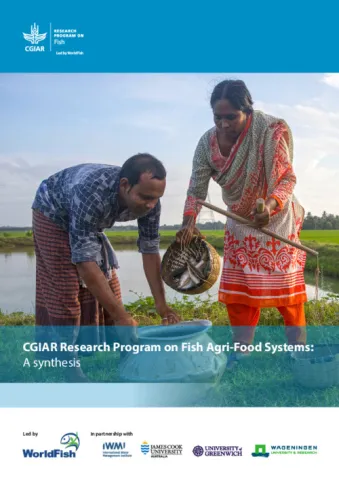CGIAR Research Program on Fish Agri-Food Systems: A synthesis

Abstract
The fish agri-food system connects supplies of fish and other aquatic foods through multiple pathways and scales to diverse consumers across the planet and is a key component of the global agri-food systems. Fish and other aquatic foods contribute to the livelihoods of 800 million people and provide 20 percent of daily animal protein, as well as key micronutrients and essential fatty acids, for more than 3.1 billion people. A diverse array of fish and aquatic foods from ocean to inland waters contributes to many national economies and diets, particularly of low-income food-deficit countries, providing one of the most accessible and often most sustainable animal source foods. With nutrient deficits high and growing in many regions and as global demand for fish and other aquatic foods grow, so does the challenge of improving and sustaining the fish agri-food system to deliver healthy and nutritious food, positive social, economic and environmental outcomes, including those represented in the United Nations Sustainable Development Goals.
The CGIAR Research Program on Fish Agri-Food Systems (FISH) was launched in 2017. It was led by WorldFish together with its managing partners, the International Water Management Institute (IWMI), the Aquaculture and Fisheries Group at Wageningen University & Research (WUR), the Australian Research Council Centre of Excellence in Coral Reef Studies at James Cook University (JCU) and the Natural Resources Institute at University of Greenwich (NRI). FISH was designed as the main programmatic vehicle for WorldFish to achieve its 2017–2021 organizational strategy objectives, specifically to identify innovative solutions to contemporary food and nutrition challenges and contribute to more sustainable and resilient fish agri-food systems. FISH developed and adopted a theory of change and an integrated approach that addressed challenges for developing and managing sustainable aquaculture and small-scale fisheries in inland and coastal waters, with cross-cutting themes of nutrition, gender, youth, capacity development, climate change and, as later emerged, COVID-19
